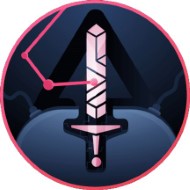Blade Component Cookbook
As part of the Laravel 7 release, we gained access to supercharged Blade components. What’s exciting about this is the fact that it can fundamentally change how you go about constructing the view layer of your applications. In this series, one component per episode, I’ll show you a wide range of practical examples that you can freely use in your own projects.
Prerequisite – Blade Components Explained
Before we begin reviewing some examples, let’s first take a moment to review what Blade components are and why you might reach for them.
Flash Component
Let’s ease into things with this first episode. We’ll build a simple, but flexible x-flash component.
Form Component
Let’s continue with another simple, but very useful component for constructing forms. Once complete, you’ll no longer need to include the necessary @method and @csrf tags for every form.
Form Button Component
Let’s continue focusing on forms for one last episode. Often, you’ll want to display a button or link to delete a resource. Let’s see if we can simplify that workflow a bit.
Modal Component
Let’s do another one! This time, we’ll create a wrapper around one of TailwindUI’s modal components.
Dropdown Component
In this episode, we’ll create a reusable dropdown Blade component by combining Tailwind and Alpine.js.
Nav Link Component
Let’s do another one! This time, we’ll create a component for a navigation link. In doing so, we’ll remove duplication as well as hide the necessary logic to check if the link should be marked as “active.”
Mobile Nav Link Component
When styling applications with components, you’ll very quickly run into responsive issues. “How do I style my nav-link component for desktop AND mobile layouts?” If the presentation for each is unique, you might instead consider creating an entirely separate component for your mobile navigation links. Let’s learn how in this episode.
Tabs Component
Basics tabs are laughably simple to create, but if we want an intuitive and reusable x-tabs component, let’s see what we can do!
Social Media Card Meta Component
In this episode, we’ll create a basic Blade component for constructing the necessary meta attributes for Twitter and Facebook social media cards.
Recaptcha Component
Next up, we’ll create a useful Recaptcha Blade component that can be attached to any form. We’ll begin by reviewing the basic setup instructions. Then, once we have a working example, we’ll move on to extracting a Blade component that uses Alpine to initialize and render the widget.
User Reviews
Be the first to review “Blade Component Cookbook”
You must be logged in to post a review.







There are no reviews yet.